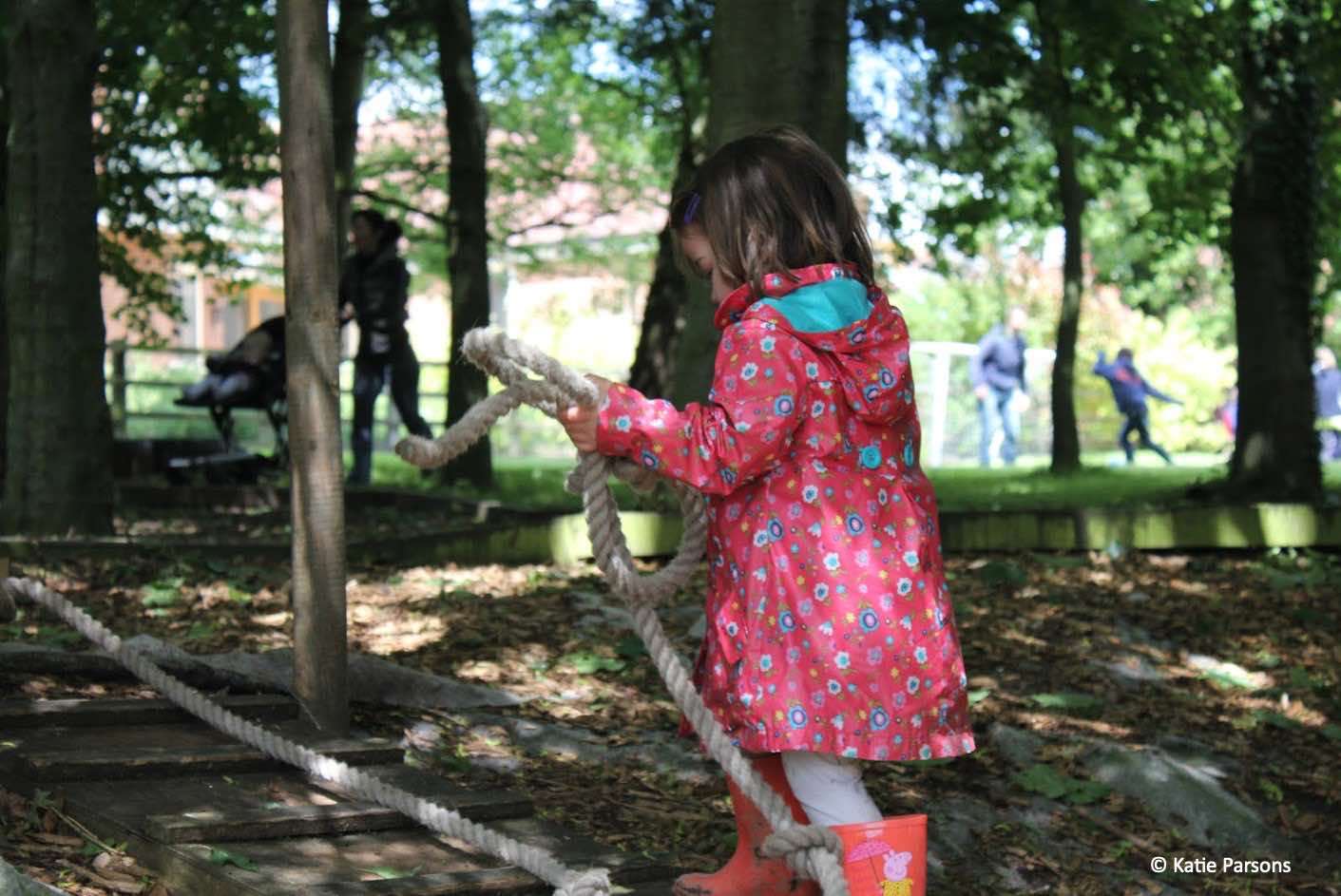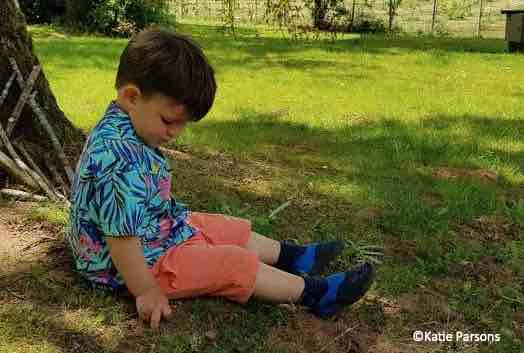Through the ‘Driving and Guiding Research’ strand of Early Childhood Outdoors’ work, we aim to find mechanisms for sharing the knowledge that is being generated through all levels of academic enquiry, and to make research findings available for practitioners to apply in developing provision and practice outdoors.
This post shares findings from the study (now published as a peer reviewed paper) that Katie Parsons made for her B.Ed. in Education and Early Years dissertation project with her supervisor Dr Jo Traunter at the University of Hull, where being, playing and learning in the outdoors is well embedded into all early years courses. Katie and Jo hope that this will encourage others to look at publishing their research too.
Do we focus on the Muddy Knees too much when in fact we should be looking at the Muddy Needs?
By Katie Parsons and Jo Traunter
The smiling, excited, if slightly grubby, children tumbled from the classroom and were closely followed by a high-spirited, cheerful teacher. The children bore the evidence of a busy and industrious afternoon in the outdoor area, dirty hands and knees, and faces smeared in mud; indications that the children had been allowed to fully embrace the textures, sounds and smells of the outdoors. The smiles were however not mirrored by the expressions of some parents waiting in the playground and the low-level grumbles indicated exasperation and frustration with the situation. This observation prompted the question as to why, and how, such disconnect could pervade and prompted a research study to investigate parental attitudes to learning outdoors, its advantages and the challenges in its implementation.
Research tells us that birth to five is a period of rapid growth and development for young children. It is therefore particularly important that children engage in experientially rich play opportunities to fully support the child as they learn about the world around them. Given the strong influence parental attitudes have on their children’s activities and behaviours, especially during the early years, the purpose of this study was to investigate the potential dichotomy between parents’ responses to learning outdoors and their understanding of the value of these spaces to the learning and development of their children.
It cannot be denied that children’s access to the outdoor environment is guarded by the gatekeepers within children’s lives, this includes parents, teachers, carers, after school club leaders and members of their immediate community. The paper “Muddy Knees and Muddy Needs: Parents Perceptions of Outdoor Play” reports back on the study, highlighting the misconceptions relating to the value of the outdoors as a space for learning, as opposed to one where children are simply allowed to ‘let off steam’. The question here is, are these gatekeepers actively discouraging schools and providers from utilising these important spaces as learning environments, and if so, why and how?

The study found that whilst parents were largely aware of the benefits of outdoor play and were able to articulate the benefits of such activity, they were still wrestling the belief that “real learning” could only occur in the classroom or with a teacher-led activity in the outdoor space with clear pre-planned learning outcomes.
It would be easy to lay the balance of responsibility for children’s lack of access to the outdoors with parents’ reticence to trust in the opportunities offered by outdoor play based learning experiences. However, the research also indicated that parents were not always alone in their reluctance to make use of the outdoors as a space for learning. Teachers and practitioners in the study indicated that time was often a mitigating factor in deciding whether or not to take the learning outdoors, reporting that ensuring that children had the appropriate clothing available before going outside was time-consuming and problematic. These factors, together with limited communication between staff and parents about the learning outcomes offered by opportunities for children to learn outdoors, were acting as a set of barriers to fully realising the potential of these spaces as environments for learning.
But are these the issues alone? The research suggested that whilst parents acknowledge the value of freedom to learn outdoors, to embrace the natural environment and to develop healthy attitudes to exercise and fresh air, there is still a reluctance to deal the resultant muddy knees. The desire to re-wild childhood has become a middle-class construct yet many parents still struggle with the grubby consequences of their child’s explorations in nature. Attitudes and understandings may develop over time as research and commentary shape our knowledge, but our values and histories are deeply ingrained. The perception that an unwashed, dirty child is in some way neglected is difficult to shift, and implications of social class that many parents relate to this scenario may still challenge parents’ acceptance that dirty or muddy learning environments are good for their child.

These challenges combined with the perceived necessity to launder clothes each evening in order to return their child to school clean and tidy the next day, whilst balancing work commitments and family life, were considered onerous and costly.
In short, the research illustrated that despite growing appreciation and understanding of the value of outdoor play-based learning experiences, the adults around the child are able to act as gatekeepers to the valuable learning experiences offered by the outdoor environment. Those gatekeepers need to work effectively together to develop a common understanding of the rewards presented by outdoor learning environments and consider ways to overcome the challenges presented by the opportunities such spaces present. Practitioners, teachers, carers and parents need to communicate, engage, reflect and provide unrestricted access to a learning environment that is rich in opportunity, vibrant and dynamic, and which could ultimately lead to a generation of children who are happier, healthier and more environmentally responsible citizens.
J. Parsons & J. Traunter (2019): Muddy knees and muddy needs: parents perceptions of outdoor learning, Children’s Geographies, DOI: 10.1080/14733285.2019.1694637
Read the full article at https://doi.org/10.1080/14733285.2019.1694637
Katie Parsons is a PHD researcher and Dr Jo Traunter is Programmes Lead for Childhood and Youth Studies at the University of Hull, if you would like to learn more about the study of childhood at Hull then you can see our full range of courses here.
https://www.hull.ac.uk/faculties/subjects/education-teaching-childhood
Images are © Katie Parsons. Please do not use without written permission.

